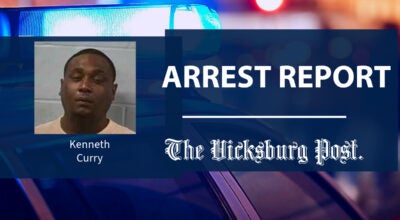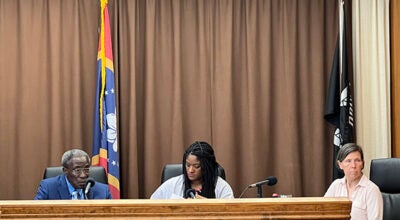Sonar scans on bridge ordered
Published 12:00 am Monday, March 19, 2001
[03/19/01] Further studies to determine why a pier under the old U.S. 80 bridge continues to move, including sonar scans, were ordered by the Vicksburg Bridge Commission Friday.
An earlier study performed by the Vicksburg District Corps of Engineers eliminated movement in the bank of the Mississippi River around Pier No. 2 as a reason why the support structure continues to move. Members of the Vicksburg Bridge Commission ordered the investigation in February 2000 and received the report at its meeting in February of this year.
At Friday’s meeting of the commission, members voted to have HNTB, the successor to the firm that originally designed the 70-year-old structure and the engineers that have been retained since to perform annual inspections and other engineering services, to have underwater studies done in an effort to determine why the pier is moving.
Jack Shortess, an HNTB representative from the company’s Baton Rouge office, said engineers from that office met with large bridge specialists from the company office in Kansas City and came up with a list of studies to recommend to the board.
Among the studies suggested, Shortess said, is an underwater sonar scan of Pier No. 2 and other piers to see if the river has scoured out holes around them.
“This sonar scan will give us a picture of the river bottom profile in 3-D and also give us the depth of (any) sediment layers,” Shortess said.
The second investigation is a hydrographic study of the river bottom on either side of the bridge and at intervals upstream and downstream to determine the contour of the river bottom.
The studies could cost as much as $246,000, Shortess said, but the company will only bill for the hours actually used and costs incurred.
In the motion to accept HNTB’s work proposal, commission member Max Reed specified the commission wanted at least written reports and bills monthly and periodic reports in person at commission meetings.





